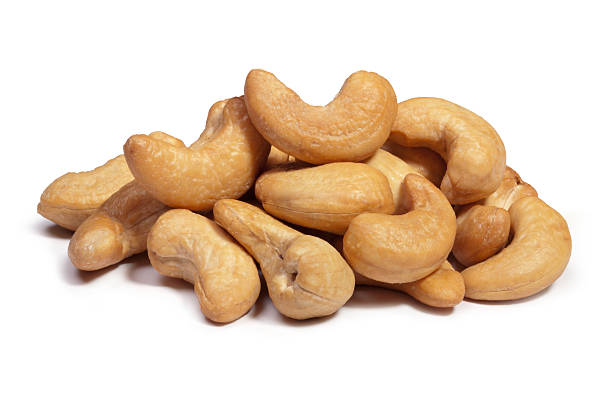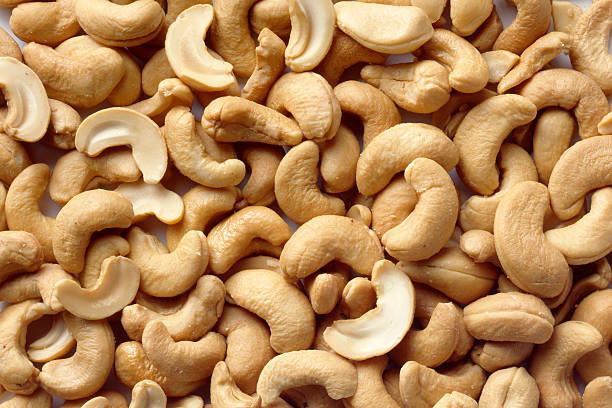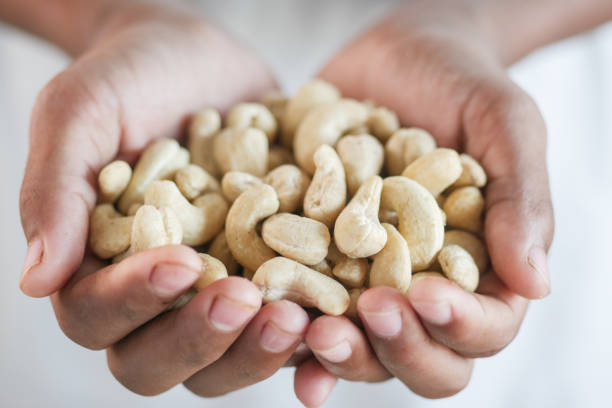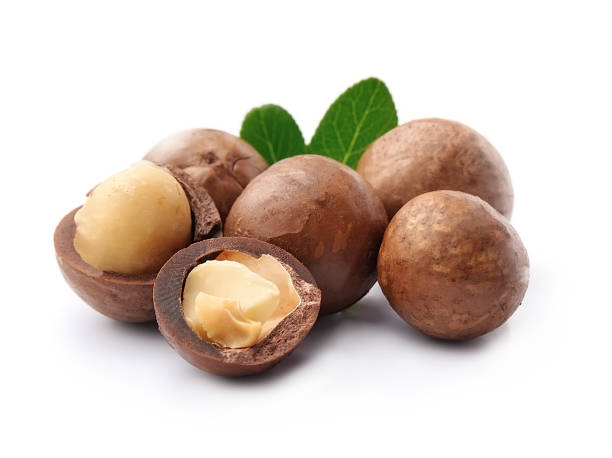Nestled within the tropical regions of the world, cashew nuts have evolved from regional delicacies to global culinary treasures, celebrated for their creamy texture and distinctive flavor. Beyond their delicious appeal, cashews boast a nutritional profile that makes them a wholesome addition to a balanced diet. Let’s delve into the nutritional richness that elevates cashew nuts to the status of a nutritional marvel.
Heart-Healthy Monounsaturated Fats:
Cashew nuts are renowned for their abundance of monounsaturated fats, the heart-healthy fats also found in olive oil. These fats have been linked to cardiovascular benefits, including the ability to lower levels of LDL cholesterol (often referred to as “bad” cholesterol) while increasing HDL cholesterol (“good” cholesterol). The inclusion of monounsaturated fats in cashews contributes to cardiovascular well-being.

Plant-Based Protein Powerhouse:
Cashews stand out as a source of plant-based protein, providing essential amino acids necessary for muscle repair, growth, and overall cellular health. While not as protein-dense as some other nuts, the protein content in cashews makes them a valuable component in vegetarian, vegan, or plant-centric diets.
Dietary Fiber for Digestive Wellness:
Cashew nuts are rich in dietary fiber, featuring both soluble and insoluble fibers. This fiber content plays a pivotal role in supporting digestive health by promoting regular bowel movements, preventing constipation, and fostering a healthy gut microbiome. Cashews’ fiber richness adds to their appeal as a satisfying and digestive-friendly snack.

Mineral Ensemble (Copper, Magnesium, Phosphorus):
The mineral composition of cashew nuts adds a nutritional punch to their profile. Cashews are particularly high in copper, a mineral crucial for iron utilization and overall metabolic function. They also provide significant amounts of magnesium, essential for muscle and nerve function, and phosphorus, vital for bone health. This mineral ensemble supports diverse physiological processes, including cardiovascular, muscular, and skeletal well-being.
Vitamin K and B Vitamins Galore:
Cashews contribute to the vitamin spectrum, featuring vitamin K, essential for blood clotting and bone health. They also contain various B vitamins, including thiamine (B1), riboflavin (B2), niacin (B3), pantothenic acid (B5), and vitamin B6. These B vitamins play pivotal roles in energy metabolism, nervous system function, and the synthesis of neurotransmitters.

Antioxidant Protection:
Cashews house antioxidants such as zeaxanthin and lutein, beneficial for eye health. Additionally, they contain trace amounts of vitamin E, a potent antioxidant that helps neutralize free radicals, potentially reducing oxidative stress and inflammation. The antioxidant-rich nature of cashews contributes to cellular health and overall well-being.
Culinary Versatility:
Cashew nuts’ culinary versatility extends from being enjoyed as a simple snack to being incorporated into various culinary creations. They can be used to create creamy cashew butter, add richness to both sweet and savory dishes, or even form the base of dairy-free desserts. Their mild, buttery flavor enhances a wide array of culinary delights.

In conclusion, cashew nuts, with their heart-healthy fats, protein content, and nutrient diversity, stand as a nutritional marvel in the world of nuts. As we savor their delicious crunch and appreciate their culinary adaptability, we partake in a journey that celebrates not only the culinary delight but also the healthful benefits of cashew nuts. From supporting heart health to providing essential nutrients, cashew nuts remain a symbol of both indulgence and nutrition in the diverse and delicious landscape of nuts.




